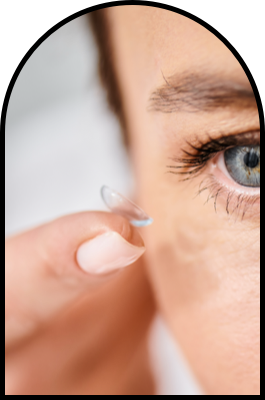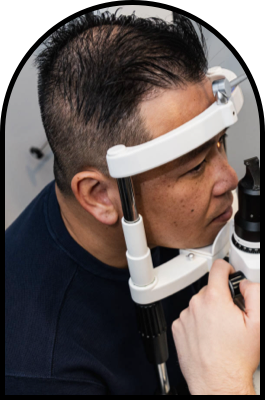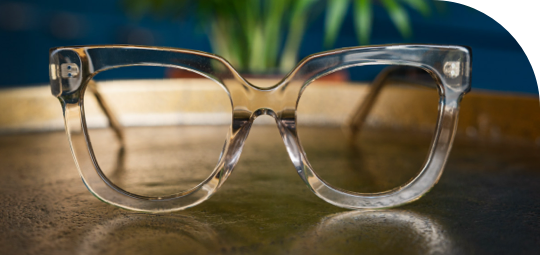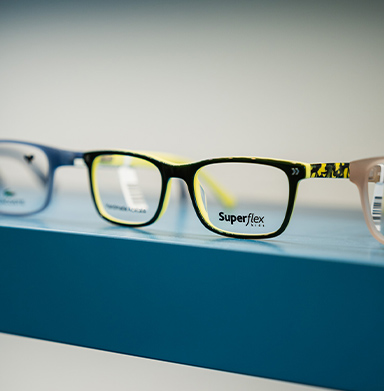Dry eye can be a frustrating condition, but it’s also common. You don’t have to live with symptoms like a dry, gritty feeling in your eyes. Of course, there are professional dry eye treatments available, but many people also wonder if there are supplements that can help with dry eyes.
The supplements and vitamins that can help with dry eye syndrome include:
- Omega-3 fatty acids
- Vitamin A
- Vitamin B12
- Vitamin C
- Vitamin D
- Zinc
These supplements and nutrients can help promote your natural tear production and reduce your likelihood of developing dry eye syndrome. However, it’s still important to visit your eye doctor for a comprehensive eye exam when you have dry eyes.
We can help you determine which supplements and nutrients to add to your diet and which other treatments may be helpful.
What Is Dry Eye?
Dry eye, also known as dry eye disease, is a common eye condition that often occurs when your eyes have a problem with tear quality or quantity. It can lead to uncomfortable feelings of grittiness, burning, or stinging on the surface of your eye—and can lead to redness and eye irritation.
Dry eye has many causes, including:
- Age
- Hormone changes
- Medication side effects
- Environmental factors (like a dusty or smoky environment)
- Digital eye strain
- Other health conditions, such as diabetes
Which Nutrients Can Help Dry Eye?
Dry eye is considered a highly treatable condition, and there are measures you can take at home to help you avoid developing the condition or reduce the severity and duration of the symptoms.
For example, certain nutrients can help with dry eyes, such as:
Omega-3 Fatty Acids
Omega-3 fatty acids may help maintain the integrity of your tear film and help reduce how quickly your tears evaporate, which can lead to reduced dry eye symptoms.
Omega-3 fatty acids can be found in supplement form but can also be found in:
- Fatty fish, such as salmon
- Flaxseed and flaxseed oil
- Soybeans
- Nuts
- Seeds
Vitamin A
Vitamin A can play a role in maintaining the health of your eyes and can help promote healthy, natural tear production.
Vitamin A can be found in supplement form but can also be found in:
- Liver
- Carrots
- Sweet potatoes
- Leafy green vegetables
Vitamin B12
Vitamin B12 is essential for your body to maintain healthy nerves and red blood cells, including those found in your eyes. In fact, a deficiency of this vitamin can contribute to the development of dry eye syndrome.
Vitamin B12 is available in supplement form but can also be found in:
- Fish
- Meat
- Eggs
- Dairy products
Vitamin C
Vitamin C can act as a natural antioxidant for your body and help support your eye health. For dry eyes, Vitamin C can help improve tear production to keep your eyes hydrated.
Vitamin C can be found either in supplement form or naturally in:
- Citrus fruits
- Strawberries
- Bell peppers
- Broccoli
Vitamin D
Recent research has suggested that vitamin D could play a role in dry eye relief. Vitamin D can help support the health of your tears and help reduce inflammation on the surface of the eye.
Your body can naturally receive some levels of vitamin D from the sunlight. However, it can also be found in supplement form and foods like:
- Fatty fish
- Beef
- Eggs
- Cheese
- Mushrooms
Zinc
Zinc is an essential mineral that can play a role in all kinds of bodily functions, including your eye health. Zinc can work with Vitamin A to help support healthy tear production in your eyes and reduce dry eye symptoms.
Zinc can be found in supplement form and in many foods, including:
- Oysters
- Beef
- Poultry
- Nuts
- Legumes
- Seeds
- Whole grains
- Eggs
- Dark chocolate with a high cocoa content
How to Treat Dry Eyes
While supplements can have benefits for some people, they aren’t a substitute for comprehensive eye care.
Dry eye is a chronic condition, and for persistent symptoms, it is essential to seek the advice of a knowledgeable eye care professional. We can assess the overall health of your eyes and create a customized treatment plan based on the unique causes and symptoms of your dry eyes.
We know how frustrating dry eye syndrome can be. Book an appointment with us today to get started on the path to relief.


























